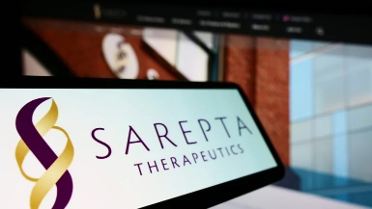Sarepta’s Elevidys secures US label expansion for DMD
June 25, 2024
Source: drugdu
 466
466
 Just a week after Pfizer revealed a Phase III trial failure for its mini-dystrophin gene therapy for Duchenne muscular dystrophy (DMD), Sarepta has announced that it has scored a US label expansion for its DMD gene therapy Elevidys (delandistrogene moxeparvovec-rokl).
Just a week after Pfizer revealed a Phase III trial failure for its mini-dystrophin gene therapy for Duchenne muscular dystrophy (DMD), Sarepta has announced that it has scored a US label expansion for its DMD gene therapy Elevidys (delandistrogene moxeparvovec-rokl).
As per the 20 June press release, the US Food and Drug Administration (FDA) has expanded Elevidys’ label to include DMD patients with a confirmed mutation in the DMD gene who are at least four years of age. Based on its functional benefits, Elevidys was granted traditional approval for ambulatory patients and accelerated approval for the non-ambulatory population. However, according to the announcement, which drove Sarepta’s shares up 36%, further progression on the approval track hinges on validated clinical benefits from a confirmatory study.
When the therapy’s durability came into question, particularly in a non-ambulatory population, Sarepta CEO Douglas Ingram said in an investor call held on 21 June, that Sarepta has a long-term post-approval commitment to evaluating the long-term durability of Elevidys in children over the next few decades.
To this end, the company is conducting the Phase III ENVISION study (NCT05881408), which is evaluating Elevidys in DMD patients who are non-ambulatory and ambulatory but older. The study, which has fully enrolled its US portion, will serve as post-marketing authentication, and answer the remaining requirements that the FDA has outlined, said Ingram.
Unlike the failed Phase III EMBARK study (NCT05096221) with Elevidys, which evaluated functional motor abilities—as determined using the North Star Ambulatory Assessment (NSAA)—as its primary endpoint, the Phase III ENVISION confirmatory study utilizes Performance of Upper Limb (PUL) 2.0 as its primary endpoint.
Elevidys, which first gained approval in June 2023 for the treatment of DMD patients between the ages of four and five years with a confirmed mutation in the DMD gene, is designed to use a recombinant adeno-associated virus vector serotype 74 (AAV74) to deliver a microdystrophin transgene that encodes a dystrophin protein. Emphasising the success of the trial’s secondary endpoints, Sarepta had submitted an efficacy supplement for the therapy’s biologics license application (BLA), which ultimately received priority review by the FDA in February.
A GlobalData consensus expects Elevidys to pocket $5.7bn in sales in 2029. GlobalData is the parent company of Pharmaceutical Technology.
Pfizer’s fordadistrogene movaparvovec was expected to compete closely with Elevidys before the company announced that no significant improvement in motor function was observed in the treatment group versus the placebo group. Additionally, treatment with the therapy did not demonstrate a significant difference from placebo across the study’s secondary outcomes which included the time it takes for patients to rise from the floor or velocity in a 10-meter run or walk.
https://www.pharmaceutical-technology.com/news/sareptas-elevidys-secures-us-label-expansion-for-dmd/?cf-view
Read more on
- China Sino Biopharmaceutical Signs Exclusive Licensing Agreement with Sanofi for Rofalcitinib March 4, 2026
- Gan & Lee Pharmaceuticals’ new PROTAC drug GLR2037 tablets have been approved for clinical trials to enter the field of prostate cancer treatment March 3, 2026
- AideaPharmaceuticals plans to raise no more than 1.277 billion yuan through a private placement to focus on the global clinical development of innovative HIV drugs March 3, 2026
- Giant Exits! Its Star Business Acquired March 3, 2026
- Focusing on cardiovascular and cerebrovascular diseases! OpenMediLead Medical Intelligence Dual Engines Launch Internal Testing, Connecting Drug Development and Clinical Diagnosis in a Closed Loop March 3, 2026
your submission has already been received.
OK
Subscribe
Please enter a valid Email address!
Submit
The most relevant industry news & insight will be sent to you every two weeks.



